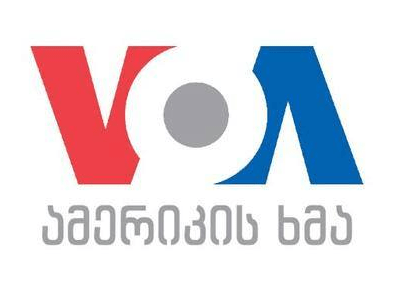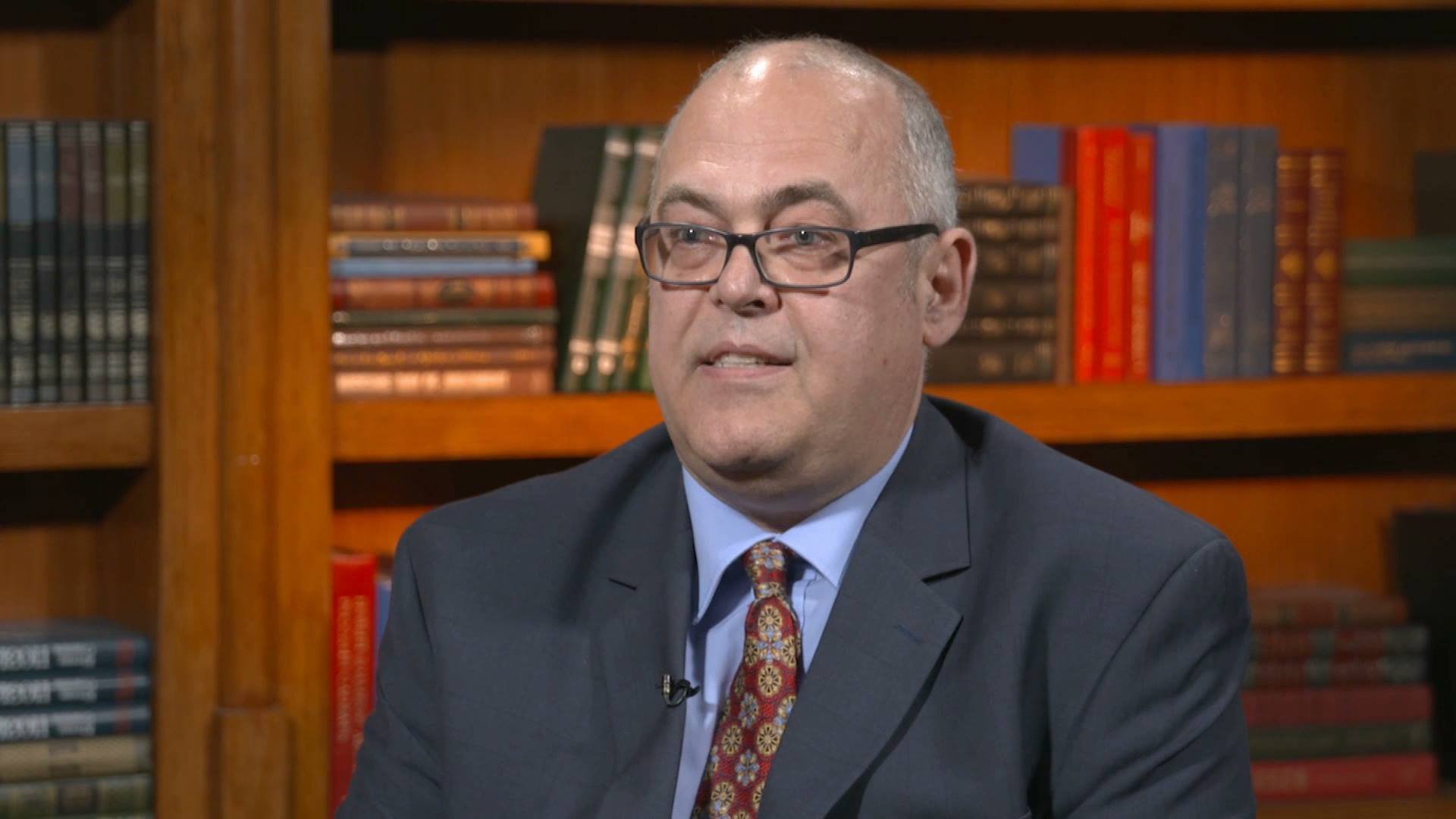Interview with Marc Behrendt: Independent Journalism Still Possible in Georgia
Director for Europe and Eurasia programs at the “Freedom House” Marc Behrendt spoke with Voice of America’s Mariam Ugrekhelidze, about European Court of Human Rights’ decision about “Rustavi 2”, media freedom and media environment in Georgia.
How would you assess European Court of Human Rights decision about Rustavi 2?
I am not a lawyer, but I think it’s very important that there are institutions like European Court of Human Rights, which has played a fundamental role throughout the Eurasia region for many years. So in that regard, of course, I think one needs to respect the court and respect the process that court has taken. One of the things that came out […] is that the court actually wrote that the Georgian legal process was fair. I know that that’s incredibly controversial in Georgia. This is one of the problems, when you have the question of the political fight almost taking over the democratic fight.
I am encouraged that the rule of law is working in Georgia and I am encouraged that at least in this one case […] the Georgian court proceeded through a normal process. But I am discouraged with polarization of the approach towards the judiciary.
Of course it is very important that you have institutions like European Court of Human Rights, or you have a judicial system that works for you. Then you get to a place where there have been accusations by some people on the extreme end of the spectrum; they are actually saying that European Court of Human Rights has been purchased by Mr. Putin or by Mr. Ivanishvili. That’s kind of [thinking, which implies] that it’s more important to win than how we win. This is something that characterized political confrontations that we’ve seen in Georgia in, let’s say, the last 10 years, and it is worrisome.
So on the one hand I am encouraged that the rule of law is working in Georgia and I am encouraged that at least in this one case we can be confident that the Georgian court proceeded through a normal process. Obviously, it is very complicated [to establish] who owns what, when and how, that’s incredibly complicated and complex. But I am discouraged with polarization of the approach towards the judiciary.
In the context of the Georgian media and political system, especially with 2020 elections coming, how important is it to have a media that is unbiased and free from government influence?
Having independent, professional media is incredibly important for any kind of political process. The problem in Georgia is that people are conflating the idea of being a critical media outlet with being a credible one. Certainly as long as you have multiple perspectives, the audience can decide themselves and that’s great. So you do need to have a critical media in the landscape; you just can’t have one side dominating.
The problem in Georgia is that people are conflating the idea of being a critical media outlet with being a credible one
But more important is to have reliable information. It should not be 95% politicized opinion and 5% news. It needs to be 95% news and 5% opinion. If we can see Georgian journalists actually forcing themselves to do that, then it would matter less who owns the outlet.
If journalists refused to actually take orders — not the editorial orders, because an outlet has the right to have whatever editorial policy it wants to have — but refuse to compromise the integrity of news reporting for some kind of political argument. I think there is a lot of room in a debate for actually having just the information. People just need information, they need to have it explained to them, and they need to trust this information is fair. If there are multiple perspectives, people should hear what those multiple perspectives are.
No media outlet in Georgia is really doing that as they should. Right now “Rustavi 2” is playing that role for certain opposition groups; they get their perspective out, and I think it’s important for them to have that perspective [publicized]. And it’s important to criticize the government, any government. But I also think that if “Rustavi 2 “ ceases to provide that function, that function will certainly still be provided before the elections. I think we will see that perspective in the media landscape.
“Rustavi2 “journalists already had experience of working with Mr. Khalvashi and they say that he was controlling editorial policy years ago. Do you see any threat the same can happen now?
If journalists were covering the news, instead of editorializing all the time, they could defend themselves a little bit more from intrusive media owners. This is a big problem, bigger than individual journalists, or “Rustavi2” or even Georgia media landscape.
If journalists were covering the news, instead of editorializing all the time, they could defend themselves a little bit more from intrusive media owners
This problem is around the world. It is not easily solved, but I do think the solution is in journalism and professionalism. I think its takes solidarity among the journalists. That’s where they can actually find the ability to take their profession back. But of course, it’s a threat. If I were a Georgian journalist… well, it’s hard to be a Georgian journalist.
I understand what you are saying, but we also heard some thoughts that if he is not going to interfere in editorial policy, then he will simply bankrupt the company and that’s how “Rustavi 2” will end. Do you see this option as a real one?
I don’t know. If journalists of “Rustavi 2” or the political interests that have been controlling “Rustavi 2” for a number of years — and you decide for how long it was going on — can’t use “Rustavi 2” as their mouthpiece, they will find another one. I just have no fear that their voice is going to be stifled in the Georgian media landscape.
If Rustavi 2 ceases to be a credible media outlet because the quality of journalism goes down, or because journalists quit, or because there is too much interference, well, then it happens. Things get better and things get worse. That’s not something for us to be horribly shocked about. Again, I think it’s more important, more broadly, for journalists to be actually dealing with these questions asked about all the media outlets.
Public broadcaster should not be the mouthpiece of a government, or any particular political perspective.
It brings up the issue of the public broadcaster. Public broadcaster should not be the mouthpiece of a government, or any particular political perspective. It needs to be serving the interests of the people, and the people need to take that back. Of course that’s something that needs to be done through legislation, through better campaigning. Ultimately, people need to be demanding that from public broadcaster.
How do you think this situation is affecting Georgian media? What lesson can journalists learn from “Rustavi 2” case?
Looking back at “Rustavi 2” in 2000-2001, when it was an idealistic journalism project, that’s something that we should really go back to. When it was funding itself through its own revenues. It’s been many, many, many years since any national media outlet in Georgia has been able to support itself through its own financing. But “Rustavi 2” was self-financing, it was idealistic and it was creative and had some of the best projects in the country in those years.
I personally would rather have really poorly edited, low quality but highly interesting, highly informative pieces of journalism.
I think it is really sad what has happened [to Rustavi 2] since. I think it’s sad that it, as well as the rest of the television stations, certainly the national television stations, have been taken over as political trophies for different political interests. It is a tragedy, because I know that journalists care about information. I know the idealism of being a journalist who cares about the country and cares about informing people, and who have been doing quality investigative journalism. These are the things that are essential for democracy, and the Georgian people at a certain point were getting used to better and better information. I think instead what happened for the last 15 years is that they’ve sort of sacrificed the integrity of content for the flashy, high quality production values. I personally would rather have really poorly edited, low quality but highly interesting, highly informative pieces of journalism. That would be something that I would watch on my television screen.
I still believe that independent journalism is possible in Georgia.
How would you assess the Georgian media environment?
I think it’s polarized. But the media environment is also relatively free and the sense is that it is still possible to be a journalist and do a very critical investigative piece, and you will not find them shot or killed or in jail. That’s not always true elsewhere. I think Georgian people should be proud of the fact that they have achieved that.
I worry more about journalistic integrity. Serious professionals beating their heads into a brick wall until they no longer can do it.
As I said, regardless what happens to “Rustavi 2”, I am sure the media market is going to respond. There will be another outlet — either purchased or created — or something else is going to happen, so that same critical voice, as you call it, will still be available to the public. I am not worried about that. I worry more about journalistic integrity. Serious professionals beating their heads into a brick wall until they no longer can do it. I feel for them the most.
 Partner Post
Partner PostThis material was prepared for Civil.ge by the Voice of America. In order to license this and other content free of charge, please contact Adam Gartner.
